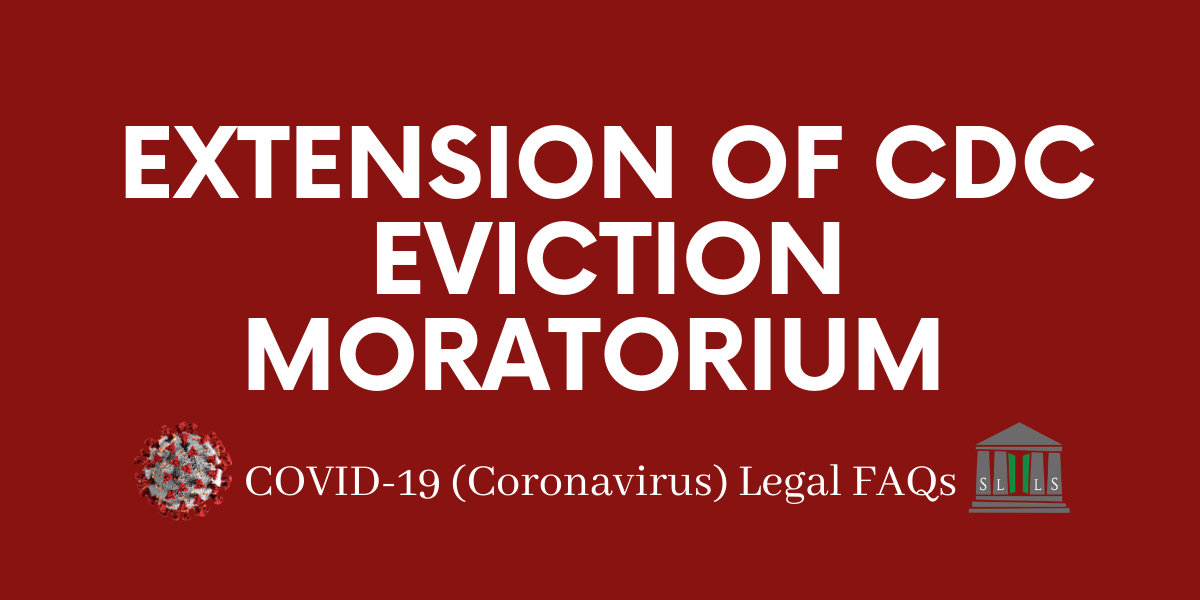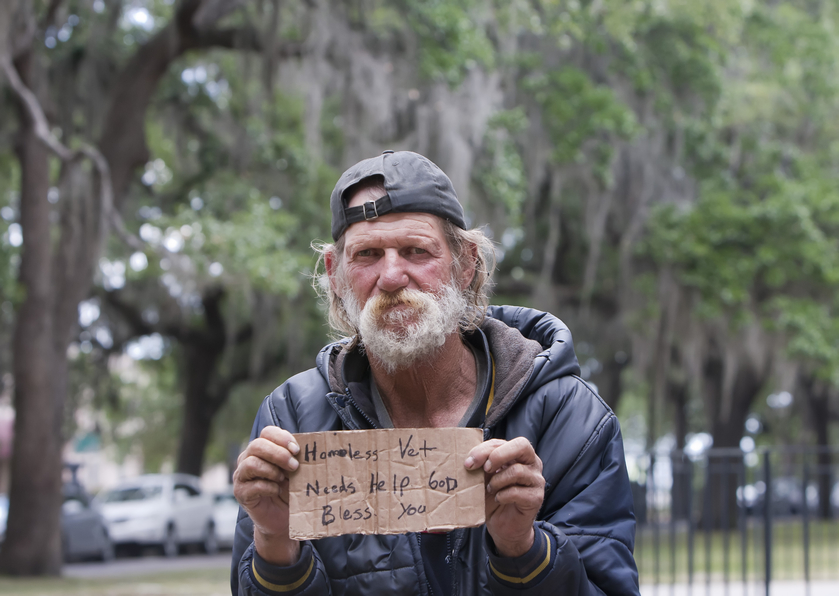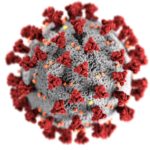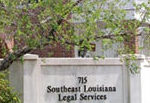Extension of CDC Eviction Moratorium
The Southeast Louisiana Legal Services COVID-19 Hotline
1-844-244-7871
1-844-244-7871

Updated as of January 21, 2021
Centers for Disease Control and Prevention
(CDC) moratorium on certain evictions is extended until March 31, 2021.
What if my landlord locks me out, cuts off my utilities, physically removes my possessions, or threatens to call the police to make me leave?
- It is illegal for your landlord to lock you out, throw your belongings out, or cut off your utilities without going through the court eviction process.
Your landlord must get a court order to evict you.
If your landlord is trying to physically remove you or your belongings from your home, you can call the police if you feel comfortable.
The police should tell your landlord to stop.
If your landlord tries to evict you without a court judgment,or to force you out by doing other things, seek the advice of an attorney immediately.You can apply for legal help
What do I do if I receive an eviction notice from a court or a Justice of the Peace while evictions are suspended?
Click here for more information about the CDC moratorium.
Contact information for SLLS Housing Law Attorneys
seek the advice of an attorney immediately. You can apply for free legal help by calling theSoutheast Louisiana Legal Services COVID-19 Hotline
1-844-244-7871 (leave a message) or Baton Rouge 1-225-448-0080
covidhousing@slls.org
New Orleans: 1-504-529-1000 x.223 message
Unless the CDC order is extended, changed, or ended, the order prevents you from being evicted or removed from where you are living through March 31, 2021.
An organization violating this Order may be subject to a fine of no more than $200,000 per event
The U.S. Department of Justice may initiate court proceedings as appropriate seeking criminal penalties (18 U.S.C. 3559, 3571; 42 U.S.C. 271; 42 CFR 70.18)
The U.S. Department of Justice may initiate court proceedings as appropriate seeking criminal penalties(18 U.S.C. 3559, 3571; 42 U.S.C. 271; 42 CFR 70.18)
42 U.S. Code § 264
Regulations to control communicable diseases
(a) Promulgation and enforcement by Surgeon General
Nothing in this section or section 266 of this title, or the regulations promulgated under such sections, may be construed as superseding any provision under State law (including regulations and including provisions established by political subdivisions of States), except to the extent that such a provision conflicts with an exercise of Federal authority under this section or section 266 of this title.
- ,JULY 1, 1944, ch. 373, title III, § 361, 58 Stat. 703; 1953 Reorg. Plan No. 1, §§ 5, 8, eff. Apr. 11, 1953, 18 F.R. 2053, 67 Stat. 631; Pub. L. 86–624, § 29(c), July 12, 1960, 74 Stat. 419; Pub. L. 94–317, title III, § 301(b)(1), June 23, 1976, 90 Stat. 707; Pub. L. 107–188, title I, § 142(a)(1), (2), (b)(1), (c), June 12, 2002, 116 Stat. 626, 627.)
During the Covid-19 Pandemic, SLLS is here for you.
SLLS COVID-19 Legal Aid Hotline: 1-844-244-7871
Click here for updated information about our operations.
Click here to read an update on SLLS's emergency response to the COVID-19 Crisis.
Click here to learn about your legal rights during COVID-19. You can also find more information by visiting LouisianaLawHelp.
The last stimulus law passed by Congress also provides certain protections and resources for renters impacted by COVID-19:
1. The law includes $25 billion in rental assistance for landlords and tenants. Stay tuned for how to access this money. Currently these resources may be available for rental assistance:
2. The law also includes a $300/week boost to unemployment programs for an extended 11-week period. Click here for more information about changes to unemployment under the stimulus plan.
To learn more about to how to apply for unemployment benefits go to www.louisianaworks.net/hire/
2. The law also includes a $300/week boost to unemployment programs for an extended 11-week period. Click here for more information about changes to unemployment under the stimulus plan.
To learn more about to how to apply for unemployment benefits go to www.louisianaworks.net/hire/vosnet/Default.aspx.
- 3. Qualifying individuals who make less than $75,000 per year will receive a $600 stimulus payment. Click here for important information about how to access a stimulus payment if you do not file taxes.
- 3. Qualifying individuals who make less than $75,000 per year will receive a $600 stimulus payment. Click here for important information about how to access a stimulus payment if you do not file taxes.
DECLARATION UNDER PENALTY OF PERJURY FOR THE CDC’S TEMPORARY HALT IN EVICTIONS TO PREVENT FURTHER SPREAD OF COVID-19
I certify that a copy of this document was provided to my landlord and/or to the owner of the property where I live via the following method(s) (check all that apply)
Instructions to Tenants
This declaration is for tenants, lessees, or residents of residential properties who are covered by the Centers for Disease Control and Prevention (CDC)’s order temporarily halting residential evictions to prevent the further spread of COVID-19.
Under the CDC order you must provide a copy of this declaration to your landlord, property manager, or other person who has a right to have you evicted.
Each adult listed on the lease, rental agreement, or housing contract must complete this declaration.

- Louisiana consistently ranks as a state with one of the highest poverty rates in the nation. Southeast Louisiana Legal Services (SLLS) serves about 50% of that population.
- The legal help we provide plays a vital role for protecting the stability of families and communities. Our work breaks down legal barriers so that low-income people can access safety, housing, income, education, medical care, and so much more. These challenges can only be solved with the help of a lawyer.
- SLLS responds immediately to the needs of our community in the wake of hurricanes, epic floods, and oil spills. We are nationally recognized as leaders in helping communities recover after disasters.
- Our Low-Income Taxpayer Clinic protects the rights of working people statewide, while the public information website we administer, LouisianaLawHelp.org, provides legal information and self-help resources to over 150,000 people every year.
- For over 50 years, SLLS has given a voice to people who struggle to obtain the legal help they need to move forward in life because they can't afford an attorney.
- In all that we do, SLLS strives to make fair and equal access to justice possible for the people who need it most.
About SLLS
Southeast Louisiana Legal Services (SLLS) fights for fairness in the justice system. We provide free legal services to low-income people across 22 parishes in Southeast Louisiana. We work every day to protect domestic violence victims from abuse, stand for the rights of abused and neglected children, preserve housing for hard-working families, end homelessness for people with disabilities and veterans, protect elderly consumers, remove barriers to medical care, improve access to employment and education for vulnerable people, and so much more.
- SLLS regularly partners with other nonprofit legal organizations and social service agencies to increase access to justice for vulnerable people. Through these partnerships, we provide pro bono activities to attorneys throughout our service area. Additionally, we connect our clients to organizations who can help with their non-legal needs. We also ensure that our most vulnerable clients can meet with our attorneys in settings where they feel safe and can easily access our help. These partnerships include:
- The Baton Rouge Bar Association (BRBA)
- Daughters of Charity
- Delgado Community College
- Justice and Accountability Center of Louisiana (JAC)
- Louisiana Appleseed
- The Louisiana State Bar Association (LSBA)
- The Martinet Society of Greater Baton Rouge
- The New Orleans Family Justice Center (FJC)
- The Pro Bono Project
- The Baton Rouge Bar Association supports SLLS' mission by recruiting pro bono attorneys to represent clients we refer. BRBA also conducts community based legal clinics in the greater Baton Rouge area.
Social Service Agencies, Nonprofits and Governments

